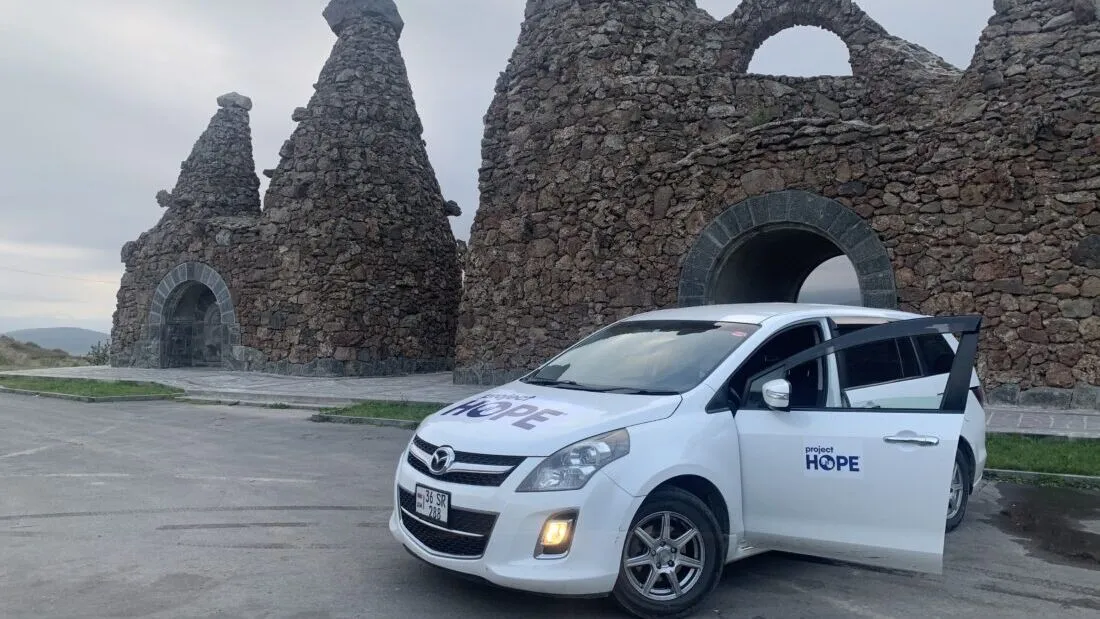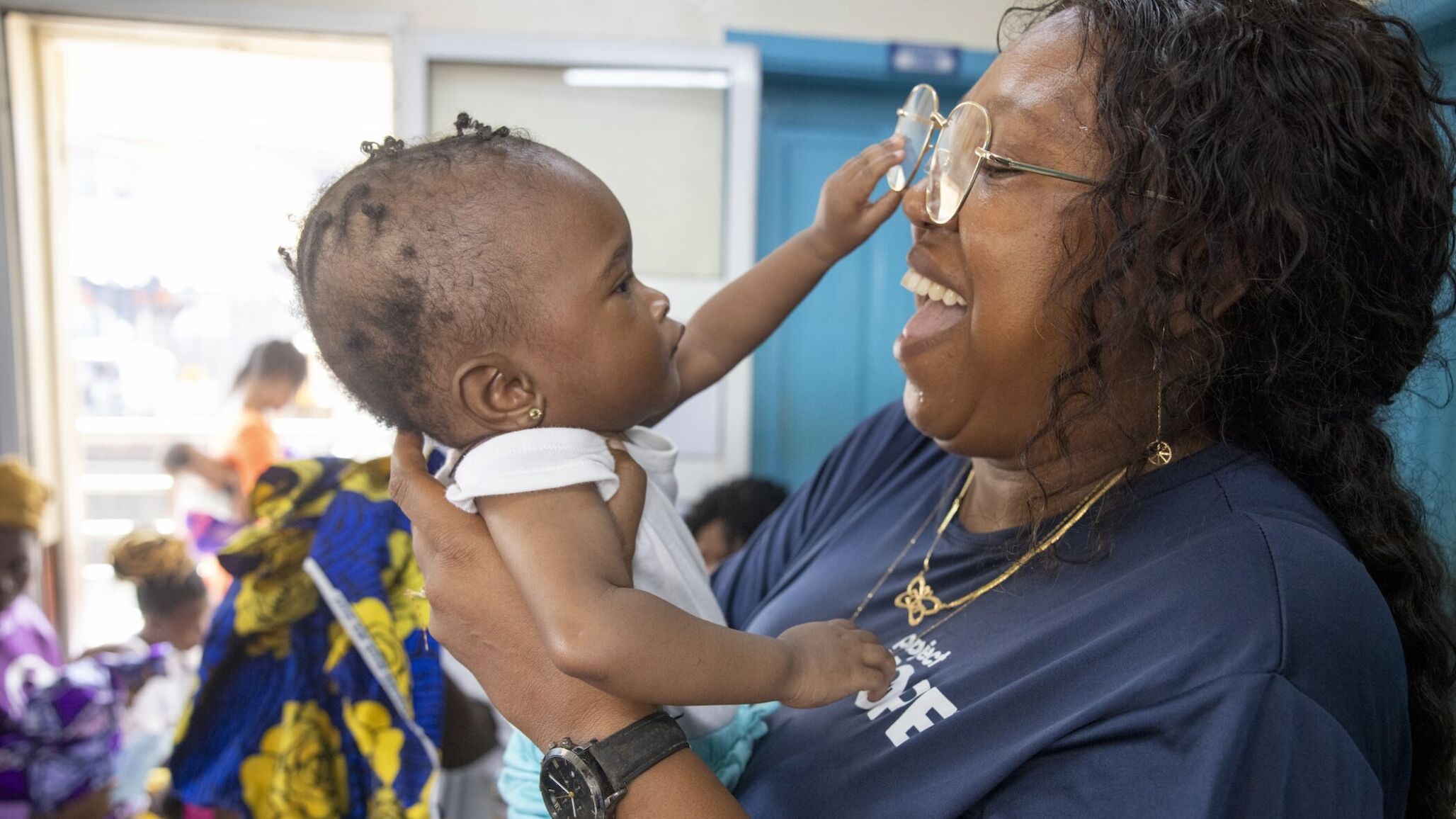News Alert: Urgent Health Needs of Refugees in Armenia

Project HOPE has been on the ground in Armenia to help assess the most urgent needs facing the nearly 120,000 refugees who fled the Nagorno-Karabakh region in September. The team has completed a comprehensive assessment in Armenia’s Kotayk, Yerevan, Ararat, and Syunik provinces in coordination with World Health Organization (WHO) and United Nations (UN) agencies.
Project HOPE is now supporting winterization activities, starting with the distribution of heaters in the region of Syunik, while continuing to work in coordination with WHO and UN agencies in the region to address any outstanding gaps.
Key findings of the assessment include:
- Immediate Needs: Many of those who fled Nagorno-Karabakh left without adequate supplies. As a result, there is an immediate need for food, cash assistance, and non-food items (NFIs) like winter clothing and blankets.
- Mental Health: The primary issue for the vast majority of the displaced is a need for mental health and psychosocial support (MHPSS) as they deal with the long-term trauma of fleeing their homes indefinitely and having to start over in a new place. Many are also dealing with stress and anxiety about living so close to the Azerbaijan border. Armenia does not have enough psychologists to meet the increase of demand. There is also an urgent need to train health workers to provide psychological first aid to better address the rise of stress and trauma amongst their patients.
- Health Systems: Armenia’s health infrastructure is ill-equipped to absorb the increased population. Most people rely on hospitals in urban areas for their primary health needs. Health facilities – particularly in rural regions – are facing a shortage of qualified, trained medical staff, as well as medical equipment and supplies. Some areas do not have ambulances to transport patients and lack quality pharmaceuticals. In the longer term, there will be a need to support the Armenian health system to vaccinate children, provide medication to address chronic conditions, and expand access to maternal care.
- Health Conditions: There is a high incidence of chronic diseases – including diabetes, hypertension, and respiratory issues – amongst the refugee population, which require specialized support. There were also many instances of miscarriage and premature deliveries for pregnant women. For children, many were weak and anemic following 10 months of a blockade of Nagorno-Karabakh and a long journey to Armenia.
- Housing: Most refugees are living in crowded apartments or hotels provided by friends, family, or the government. While everyone has a roof over their head, many are living in spaces that lack proper windows, insulation, and/or heating; have no furniture; and/or lack toilets. A smaller portion of the community is unhoused, living in schools as they await more permanent housing. There is a need to support longer-term housing solutions and to prepare structures for the cold.
- Winterizaton: The refugee population left their homes during warmer months with only the essential items they could carry. This has resulted in the population being ill-prepared for winter conditions. The provision of adequate shelter and winterization items such as warm clothing and heating fuel are essential.
- Employment: The crisis has resulted in a loss of livelihood for this community, particularly for men who served in the military. Efforts to help refugees find employment and support their families are essential to promoting social integration, and to ensure that families can become self-sufficient once again.
Marta Stoian, Project HOPE’s Mental Health and Psychosocial Coordinator in Ukraine said: “Our primary concern is for the mental health of these people who have experienced and – in many cases – inherited trauma from living through an ethnic and political conflict that has been ongoing for 35 years. While many are now by all means ‘safe,’ they are experiencing a great deal of post-traumatic stress from living through a 10-month blockade of the Lachin Corridor, followed by an arduous and uncertain journey to escape across the border. As a Ukrainian who has lived through the trauma of war this past year and a half, I know how critical it is to provide immediate and long-term supports for these individuals, while also supporting their social integration.”
Photos are available here. Interviews with staff are available upon request.
###
Project HOPE’s History in the Region: From 1990 to 1993, Project HOPE supported Armenia’s recovery from the 1988 earthquake by providing humanitarian relief, medical treatment, and pediatric rehabilitation education and training for health workers. From 2009 to 2012, Project HOPE worked with Armenian health officials to improve tuberculosis (TB) control efforts by training officials and health workers in case detection and infection control. Most recently, Project HOPE responded to the 2020 conflict in the N-K region by providing essential health packs to the Armenian Ministry of Health, donating an Interagency Emergency Health pack (IEHK), and procuring hygiene kits for 6,000 people, as well as training health workers.



